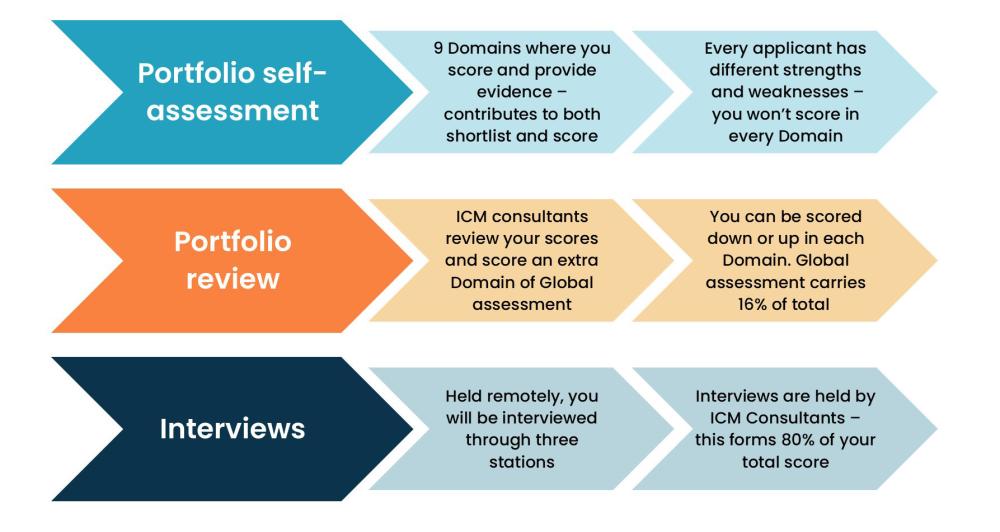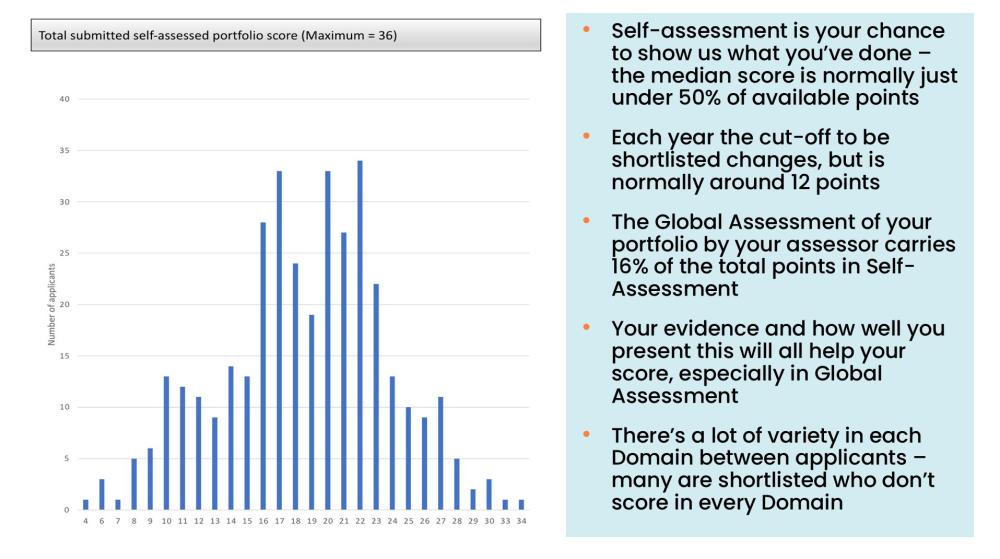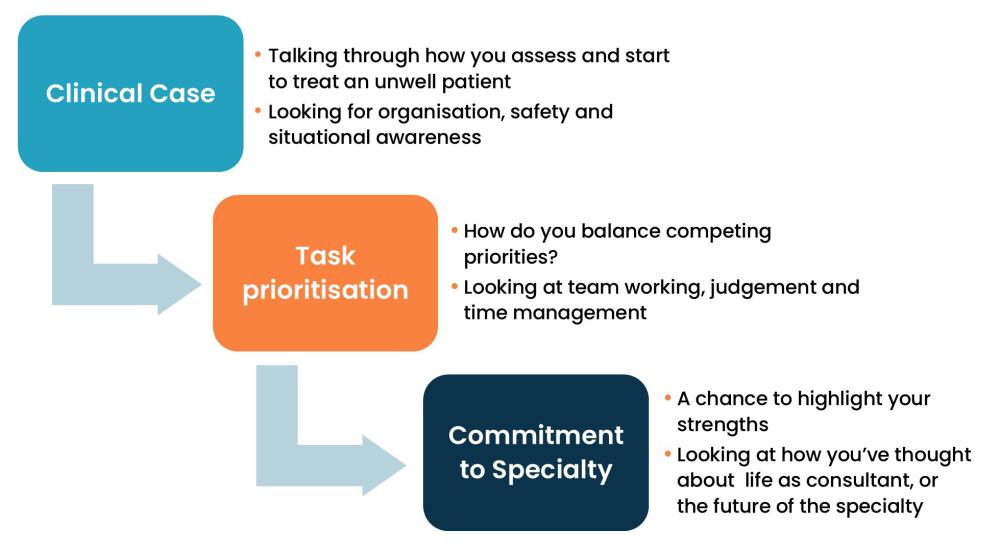ICM ST3 National Recruitment
ICM National Recruitment Office (ICMNRO)
Information on how to apply, the national recruitment timeline, and applicant guidance and other useful information can be found on the ICMNRO website.
You can apply for the ICM CCT programme if you have completed any one of the following approved core training schemes:
- Acute Care Common Stem (ACCS)
- Core Anaesthetic Training (CAT)
- Internal Medicine Training (IMT), OR
- Defined Route of Entry into Emergency Medicine (DRE-EM).
Person specification
- FICM reviews and updates the ICM ST3 Person Specification annually in liaison with the Medical and Dental Recruitment and Selection programme.
- To view the current published ICM ST3 Person Specification see the NHS England Workforce, Training and Education website. The 2026 version has not yet been published on the NHS website so please see the downloads section of the ICMNRO website instead.
- You can also access all the current guidance and documentation for ICM ST3 National Recruitment on the ICMNRO website.
Recruitment process

Self-assessment

Interview stations

2026 Recruitment Timeline
The full timeline can be accessed on the ICMNRO website.
Dates for 2026 ICM National Recruitment are below.
|
DATE |
EVENT |
|---|---|
|
Wednesday 19 November 2025 (by 5pm) |
Advert appears on Oriel |
|
10am Thursday 20 November to 4pm Thursday 11 December 2025 |
Application window |
|
Wednesday 14 January - Wednesday 21 January 2026 |
Self Assessment Document Upload window |
|
Tuesday 10 February 2026 |
Self Assessment verification scores released |
|
Tuesday 10 February - Friday 13 February 2025 |
Self Assessment review window |
|
Monday 2 March 2026 |
Invite to Interview & Applicant Declaration sent |
|
Wednesday 4 March 2026 (4pm) |
Deadline for Interview Booking & Applicant Declaration return |
|
Interview Dates |
|
Tuesday 14 April 2026 (by 5pm) |
Initial Offers Released |
|
Wednesday 22 April 2026 (1pm) |
Hold Deadline |
|
Thursday 23 April 2026 (4pm) |
Upgrade Deadline |
|
Wednesday 6 May 2026 (by 4pm) |
Deadlne for paperwork to be submitted |
PLEASE NOTE: While FICM is happy to offer general advice about ICM recruitment, we are not able to assist with queries about submitted applications. For any questions regarding your application, please contact the ICM National Recruitment Office here, as they are best placed to help.
Post numbers
The numbers of available posts in each specialty is controlled nationally by NHS England and the devolved nations' NHS administrations.
Please be aware that post numbers for regions shown on Oriel will be the minimum that region will offer, but the actual number of posts available can be substantially higher.
Regions only need to give indicative post numbers to ICMNRO when the application window opens. If a region enters '0' as the bottom of their range of posts, Oriel will show as 0 posts currently available, but please note that this is unlikely to be the final number of available posts in that region.
Applicants are advised to check the ICMNRO website for the full range of these numbers.
KEY UPDATES that applicants and trainers should be aware of regarding ICM national recruitment
For those wishing to join the single ICM CCT programme, you will be beginning your ST3 ICM journey against the 2021 ICM Curriculum.
- For doctors in Core Anaesthetic or Internal Medicine Training it will be possible to apply for an ICM ST3 training post during the second year of your programme (see the pathway diagram on page 15 of the ICM Curriculum for further details).
- For doctors on the ACCS Core Training Programme, anyone wanting to undertake the Single ICM CCT then you can apply for a national training post in your third year.
As long as you are on track to successfully complete the year and have the suitable examinations to suit the eligibility criteria in the ICM ST3 person specification.
However, it leaves doctors in these programmes with an important decision to make, as not completing your Core Training Programme in full will have consequences on your future career plans should you ever want to dual/triple train with ICM and another specialty.
If you are sure that the single ICM CCT is the pathway for you, then applying before you have completed your core training programme in full (as per the instructions above) may be something you wish to consider. However, if you have any aspirations to dual/triple train in the future then completing your core training programme in full may be the best course of action. See our guidance for the Dual and Triple ICM CCTs Programme here.
We would encourage you to speak to your local ICM trainers to find out more about training in your region, but if you have any specific queries, please contact us; contact@ficm.ac.uk
It is possible to dual/triple train in ICM and a second specialty. There are currently five GMC approved dual/triple ICM CCT programmes:
- Acute Internal Medicine and General Internal Medicine
- Anaesthetics
- Emergency Medicine
- Renal Medicine and General Internal Medicine
- Respiratory Medicine and General Internal Medicine
Important points to note:
-
To be eligible for one of the dual or triple CCTs programmes you must complete your core training programme in full e.g. (IMT, CAT or ACCS) or equivalent
-
Since 2016, doctors are not be able to apply for Dual/Triple CCTs if they are beyond the end of ST5 in their initial specialty of appointment at the time of interview for ICM.
-
From the 2024/2025 application window onwards, doctors will be able to apply for ICM Specialty Training at the same time as applying for specialty training in any of its GMC-approved partner specialties. For further details and FAQs - access the news item here.
Dual/triple training can bring its own benefit to training with a number of transferrable skills, varied work and complimentary curricula.
Doctors on the dual/triple ICM CCT will need to acquire the full capabilities of each specialty's curricula but by a suitable choice of training attachments and educational interventions this can be achieved without undue prolongation of training.
For those undertaking a dual/triple programme, all the respective CCTs have to be awarded simultaneously.
Whilst the numbers choosing to do the single ICM CCT is increasing, dual training remains the most common option with survey data from interviewees at the last three recruitment rounds showing that the number of trainees wanting to undertake a Dual CCTs programme was on average 93%.
- Further information on the GMC approved Triple CCTs with ICM and specific Group 1 physician specialties can be accessed here and via the Triple CCT Guidance link below
- The Dual and Triple CCT Programme Guidance is available here.
The following practical details may be helpful for for those doctors wishing to undertake one of the Dual/Triple ICM CCT Programmes:
- Some doctors may already be training in one of the specialties and planning to apply for the other in the following recruitment round. Others may be applying for their first specialty.
- Doctors can apply for either the Medical Specialty (e.g. Respiratory and Internal Medicine)/Anaesthesia/Emergency Medicine or Intensive Care Medicine first. They can then apply for the other specialty in the following recruitment round.
Eligibility to apply for ICM ST3 training is complex. ICM specialty training can be entered following initial training in anaesthesia, medicine or emergency medicine at core/basic/stage 1 training level (the level of training required depends on when the training was completed and whether the doctor intends to pursue ICM training with a partner specialty (dual/triple CCT).
The applicant must present evidence of the training undertaken AND hold the relevant specialty’s College exam as stipulated in the ICM National Recruitment Office (ICMNRO) eligibility documentation.
If a potential applicant is applying via the medicine route and wishes to provide the JRCPTB (Joint Royal Colleges of Physicians Training Board) Alternative Certificate, then FICM and ICMNRO are aware that Internal Medicine Training (IMT) has a curriculum for which all components must be met for the certificate to be issued. The following guidance is in the 2024 ICM ST3 applicant guidance and we feel it is beneficial to circulate this to FICM Tutors, Regional Advisors and other consultants involved in ICM training who may be approached by potential applicants for advice and signatures.
If all the components of the JRCPTB Alternative Certificate cannot be met, then it is possible that the CESR route may be more suitable for a candidate to pursue. There have been some applicants recently who have had their offer of a CCT training withdrawn when they have presented a signed alternative certificate but are then not able to present evidence of having completed any relevant medical placements.
IMPORTANT: Applicants who are submitting an Alternative Certificate to Enter Group 2 Higher Physician Specialty Training must make sure they have evidence of 24 months experience in medical specialties (of which at least 12 months must include the care of acute medical in-patients). Experience in certain acute care common stem specialties can be counted towards the 24 months in some circumstances. These posts are all defined by the JRCPTB.
The alternative certificate MUST be signed by an appropriately qualified consultant – as defined by Joint Royal Colleges of Physicians Training Board. The signatory must have worked in the NHS within 5 years of the certificate being signed and have a good knowledge of the IMT Stage 1 curriculum.
The form is lengthy and detailed. Importantly, the signatory must attest to seeing evidence commensurate with all the IMT curriculum’s expected outcomes with 2 years medical specialty experience.
If an applicant, or potential Consultant signatory, has any doubt then the Regional Advisor in ICM should be consulted.
Interested in a career in ICM?
Read some stories from those working in the specialty.
